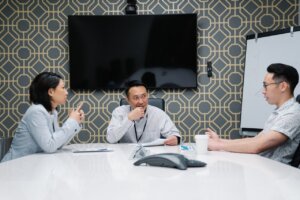Why It’s Important to Work On Ourselves, as Consultants
The world as we experience it is the product of perception not the cause of it. As people we are not passive receptors of stimuli coming from an external world, but in a very concrete sense we create much of our reality. This is why it is so important for consultants to “work on” ourselves.
Our language shapes most of our concepts and thoughts. What also influences us is our own experience of power and powerlessness; our relations with authority and authority figures, our propensities to handle conflict one way rather than another, our capacity to deal with uncertainty and ambiguity, all these and more aid and inhibit our perception of our realities. Sometimes consulting is operating in a house of mirrors. What is me and what is not me are important to differentiate.
Differentiation itself is an act of maturity, forging an identity as a consultant and what you will do and what you will not do is important, but not as important as knowing your own issues while in the midst of others. Who am I here and what is my purpose, and what are those things that “hook” me is equally as important as knowing who your client is and how they are getting in their own way. It is always easier to see this in other people.
Growing Ourselves
I have just finished reading The Help by Kathryn Stockett, which is the story of a woman in Jackson, Mississippi during the 1960s in the midst of the civil rights struggle, writing about the lives of black maids. The narrator discovers her own assumptions and begins to see new things, which had previously been unconscious. Consulting in the field of organization development is a vehicle for personal and collective growth. As we grow we see ourselves and each other, and our reality before us differently. I referred to this two posts ago. When I was younger I had lots of ambition and passion, I was impatient. As I get older I have learned to discover compassion for others and for myself.
I would suggest our readers to explore Peter Senge’s Ladder of Inference. It is a visual tool to examine our own assumptions and fears, and see how we get in our own way of diagnosing the situation clearly. The data we select to make sense of our world is a reflection of our own beliefs and assumptions and experience.
Abraham Maslow once commented that one measure of health is the ability to perceive reality accurately. Think about it.
—————————
For more resources, see the Library topics Consulting and Organizational Development.
—————————————————————————————-
Jim Smith has over 40 years of organization development experience in a wide range of organizations. He can be reached at [email protected]
 Sections of this topic
Sections of this topic
















